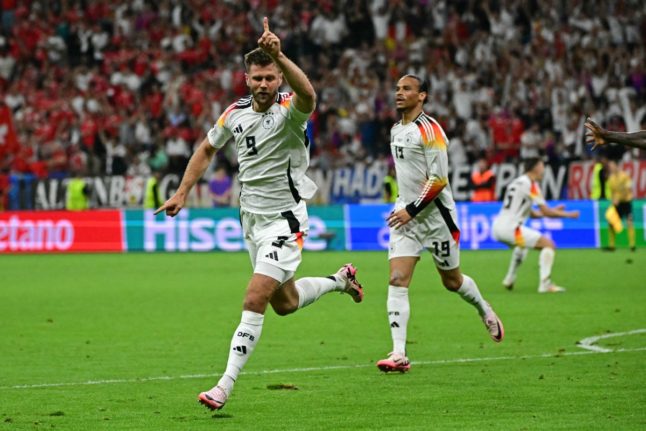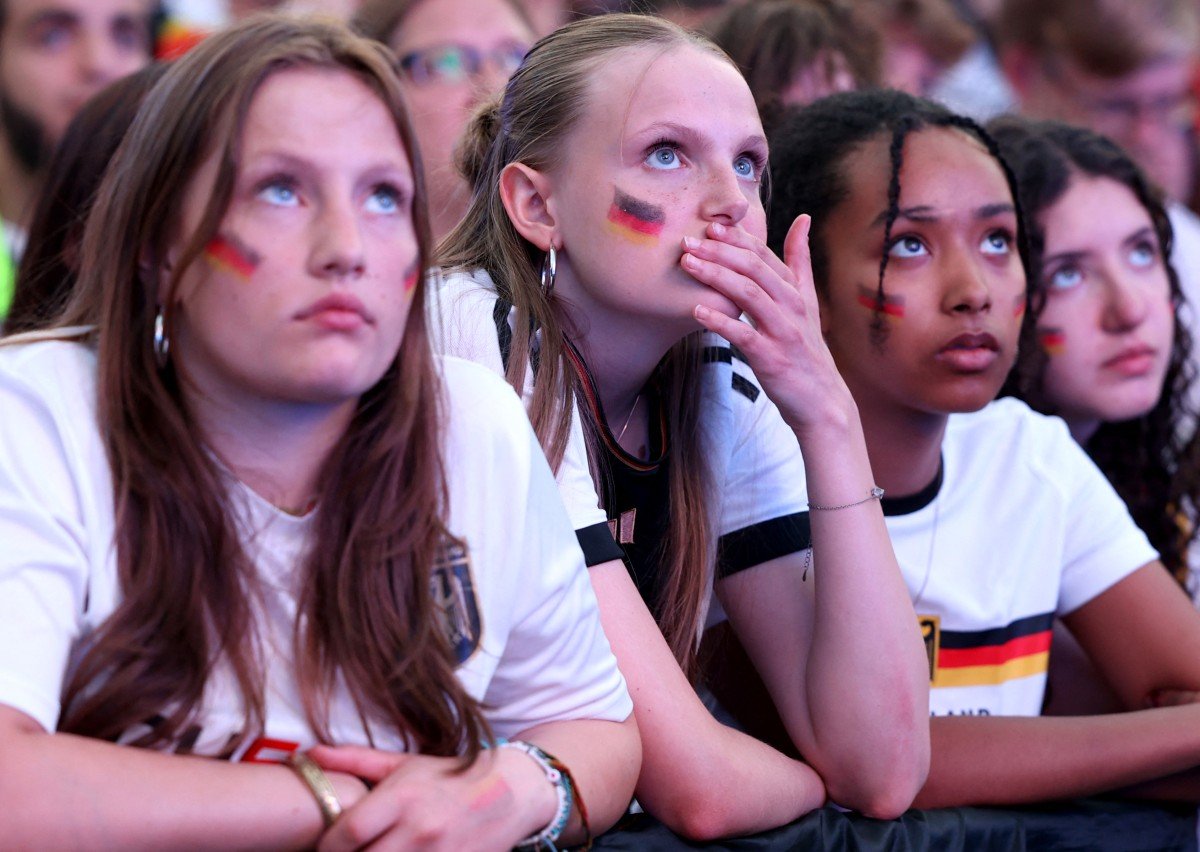Local stations were overcrowded for hours after the Euro 2024 England vs. Serbia game in Gelsenkirchen on Sunday night.
Match attendees took to social media to complain about being left to wait for up to three hours after the final whistle for a train back to the city centre.
In the lead-up to the game there had been concerns about potential fan violence, with German authorities even taking the precautionary measure of ensuring that weaker beer would be served. There were also rumours that local police had encouraged fans to smoke cannabis rather than drink.
But in the end, it was travel chaos that soured the post-game mood on Sunday night, and sparked a debate on why host cities for sporting events regularly fail to prepare for the massive crowds that they should expect.
Some international visitors would have been familiar with Germany’s reputation for having highly punctual trains and buses. But local residents know that Germany’s national rail operator, Deutsch Bahn, has been criticised for having a high rate of late or cancelled trains for many years.
The myth of German efficiency
A video shared on social media platform X showed hundreds of fans still waiting to catch a train three hours after the match ended.
This really isn’t great. Gelsenkirchen main station packed with fans still trying to get away but trains either not turning up or delayed. Game finished almost 3 hours ago. pic.twitter.com/7BgYQs4zPr
— James Olley (@JamesOlley) June 16, 2024
Top comments on the clip tended to be rather disparaging of Germany’s public transportation. “Welcome to Germany”, was among the most liked comments.
A Tagesspiegel reporter who attended the game was among the crowd. In a write-up about the event he asked, “Why could a stadium that usually receives 60,000 people every two weeks suddenly not be able to deal with such crowds? Why was a game that didn’t start until 9 pm and was classified as a ‘high-risk game’ awarded at this location at all?”
He also noted that transportation capacity issues really began before the match, with many fans forced to walk more than six kilometres to the arena due to a lack of trains and buses.
The English fan alliance FSA also voiced clear criticism following the game: “We are dismayed by what the fans had to go through,” it said in a statement. The reaction of the authorities points to “a complacency that does not meet the requirements”.
Can German transport handle Euro 2024 crowds?
Some are wondering if Germany’s transportation infrastructure is prepared for Euro 2024, or if more events like that seen in Gelsenkirchen on Sunday night will be seen throughout the tournament.
At the end of April, Deutsche Bahn announced plans to increase capacity on its regional trains this summer. Even without an international football championship, local trains had been severely overcrowded is some regions, especially during the summer months.
At that time, Evelyn Palla, Deutsche Bahn board member and DB Regio CEO had said that she didn’t think regional train congestion would be made worse by Euro 2024.
One of the downsides of hosting Euro 2024 for Germany is the rest of Europe discovering all those stories about efficiency and organisation are as fanciful as a Grimm’s Fairy Tale. pic.twitter.com/WHhMWl0WBL
— Nic Houghton (@40PercentGerman) June 16, 2024
But local transport companies hit back at claims that they had failed to meet their responsibilities for taking fans to and from the matches.
“Social media is a snapshot that only gives a limited picture,” local transportation company Bochum-Gelsenkirchener Straßenbahnen AG (Bogestra) told DPA. “We made a good effort with the capacities we had available.”
The spokesman added that Bogestra had been running trams with twice the usual capacity and numerous buses that were permanently in use. There were also extra trains in the direction of Essen Central Station.
Additionally a spokesman for the board of the region’s biggest transportation provider, Verkehrsverbund Rhein-Ruhr (VRR), said on Monday in Düsseldorf that the transport companies had “done a great job”.
But those forced to wait for hours on a rainy evening saw it differently. Fans noted that the fan zone was opened too late on Sunday, the shuttle buses were too late, and the transport from the fan zone to the stadium was “chaotic”, according to reporting by DPA.
Some raised concerns around accessibility, noting that the stops designed for accessibility were not announced and were therefore missed by people with disabilities.
READ ALSO: Where are the fan zones for Euro 2024 in Germany?
Of course not every disruption can be blamed on match organisers or the transport companies. Fans had also increased traffic in at least one incident by pulling the emergency brake.
There was also one vehicle found to be defective on arrival that had to be taken off the track.
Regarding the overall composure of the crowd, however, police reported no serious problems due to fans’ “level-headed behaviour”.




 Please whitelist us to continue reading.
Please whitelist us to continue reading.
Member comments